- Home/
- Guides/
- Dog Grooming/
- Dog Grooming Tools for Grooming Your Dog at Home
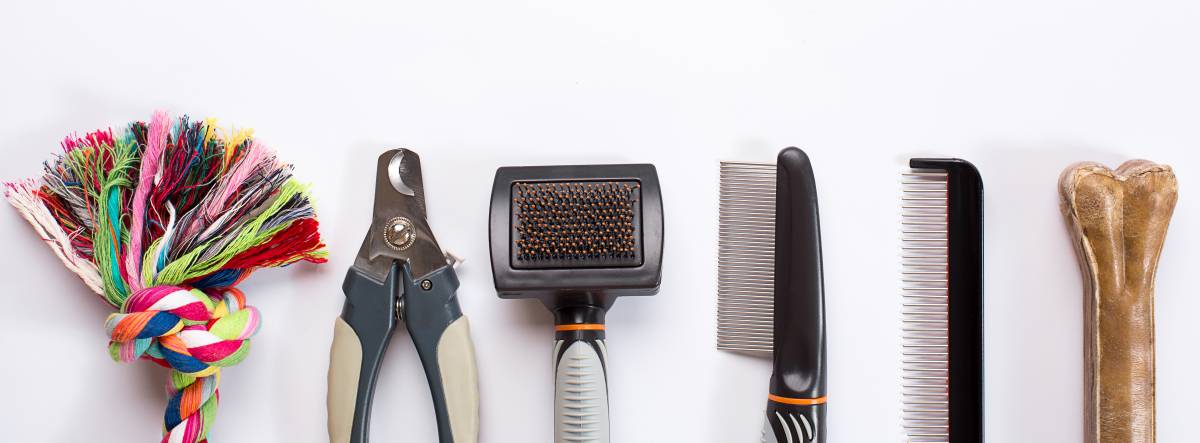
Dog Grooming Tools for Grooming Your Dog at Home
Have these tools on hand for routine grooming, and get extra help when you need it.
Get free dog grooming quotesLast Updated on
Grooming your dog at home is a great way to save time and money while helping your pet feel comfortable during the grooming process. Before you start, you’ll need to prepare a dog grooming toolbox, complete with the items you’d typically find at your neighborhood grooming service.
Here’s a list of dog grooming tools you’ll need to groom your dog safely. In this guide, you’ll also find tips on how to pick the best dog grooming tools.
1. Dog grooming table
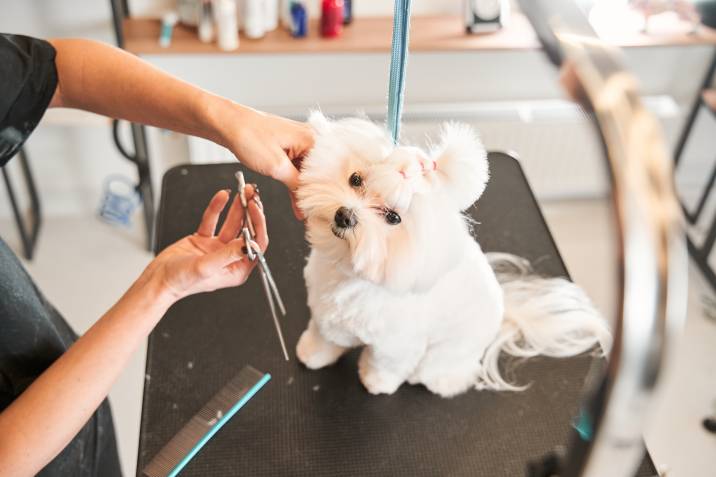
Your dog grooming table should be large enough to accommodate your pet and high enough for you to see what you’re doing. As a general rule, you’ll want a dog grooming table that’s 4 inches above your belly button.
2. Dog grooming hammock
A dog grooming hammock is a nifty solution for anxious dogs that squirm or fidget a lot during grooming sessions. This device lets you suspend your dog in the air, so you can cut their nails easily. You’ll also be able to easily groom your dog’s tail, clean the eyes and ears, and administer medicine.
Here are some tips to consider when using a dog grooming hammock:
Get the right size of hammock - The grooming hammock should fit your dog just right. If the hammock is too big, your dog will still be able to wiggle around.
Consider making your own - A DIY dog grooming hammock ensures you get the right fit and saves you the cost of buying one from the store. This brilliant DIY tutorial shows you how to make a harness with a towel and hooks.
Hang up the grooming hammock from a stable rig - If you’re hanging your hammock from a shower rod, make sure it’s actually screwed to the wall! Other rigs you can use are a grooming arm over a table, or a hook and chain hanging from the ceiling. To ensure your pet’s safety, you can hire a local handyperson to properly rig up your dog grooming hammock.
3. Brushes for dog grooming
While there are different kinds of brushes available on the market, your pet doesn’t necessarily need all of them.
Below are some general guidelines on dog grooming brushes:
Shorter-haired dogs require short bristles.
Long-haired dogs require long bristles.
Wiry-haired dogs require stiff “wiry” bristles like those of a slicker brush. Don’t use long, wiry bristles on short-haired dogs, as you might end up injuring their skin.
Slicker brush
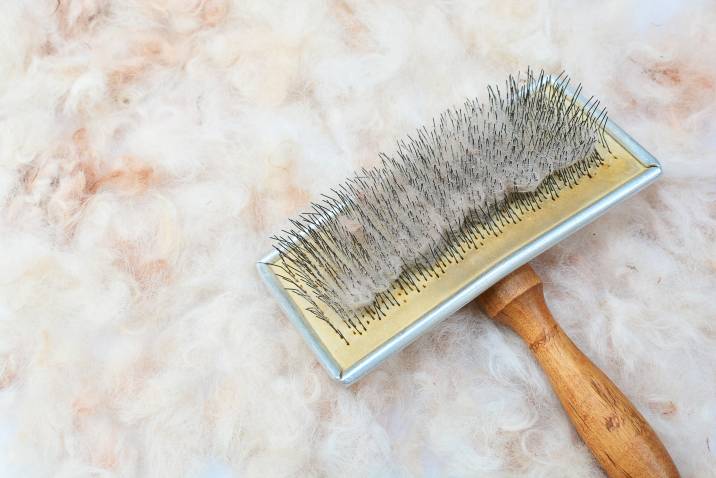
A slicker brush is a special grooming tool made up of wires angled away from your pet’s skin. What’s great about slicker brushes is they help remove debris and hair that’s already fallen off. They’re particularly useful grooming tools for wire-haired dogs such as German wire-haired pointers, border terriers, and schnauzers.
Metal comb
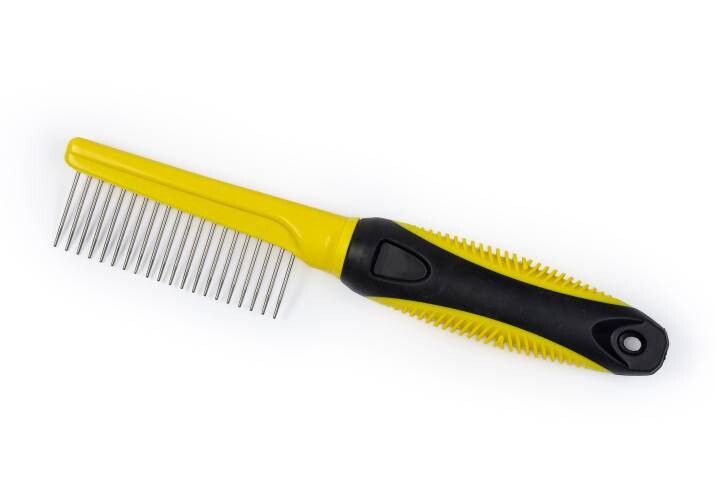
Metal combs are excellent at removing tangles and mats from your pet’s fur. They’re also great for finishing and fluffing a dog’s fur – especially for long-haired breeds. To get the best results, use a slicker brush first, then do a once-over with a metal comb.
Bristle/ pin brush
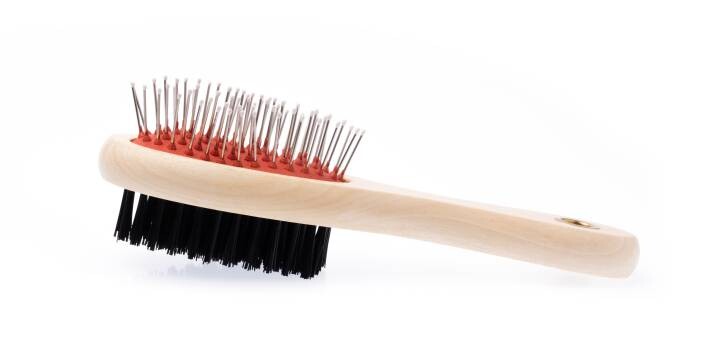
Is your pooch a short-haired, smooth-coated breed like a pug, chihuahua, or Boston terrier? You should get them a bristle or pin brush to remove loose fur and tangles. The bristle side makes the coat look smooth and shiny by redistributing the natural oils in your pet’s skin.
Deshedding comb or glove
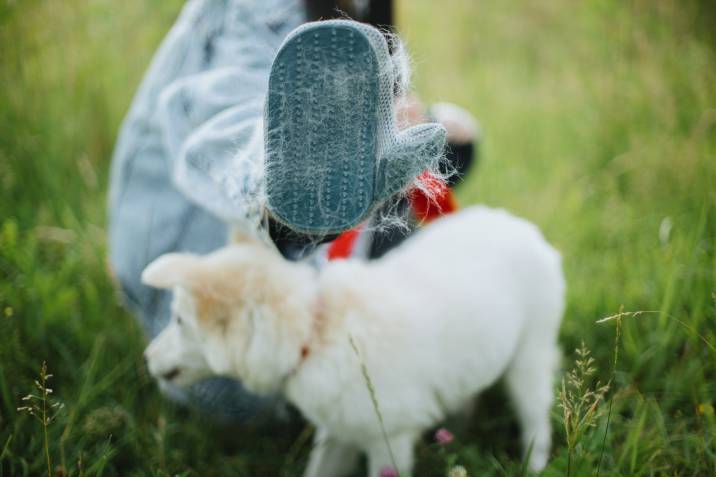
Depending on your dog’s breed and lifestyle, they may shed heavily a couple of times a year or all year round. To help lessen the fur that’s flying around your home, you’ll want to use a deshedding comb or rake on your dog a couple of times a week. Some of the best combs available right now “rake” your pet’s undercoat (safely, of course). You’ll easily get rid of all that dead hair and stop it from getting all over your furniture! A deshedding glove is another nifty tool for getting rid of loose fur and debris on your dog.
4. Ear cleanser for dogs
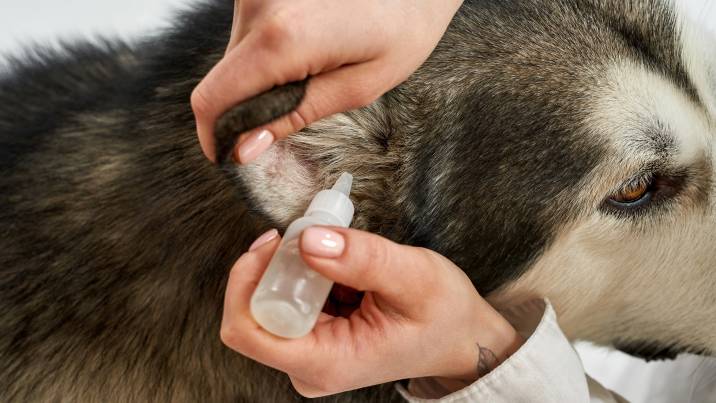
An important part of grooming or bathing your dog is cleaning their ears. To do this, you’ll need a vet-recommended ear cleanser and a soft washcloth.
Ear cleaning once a month is ideal for pointy-eared breeds, while long- or floppy-eared dogs may need a cleaning every other week. If you’re not quite confident doing the task yourself, you can hire a local dog groomer instead. We’ve also written a guide on how often to wash your dog.
5. Dog nail trimmer
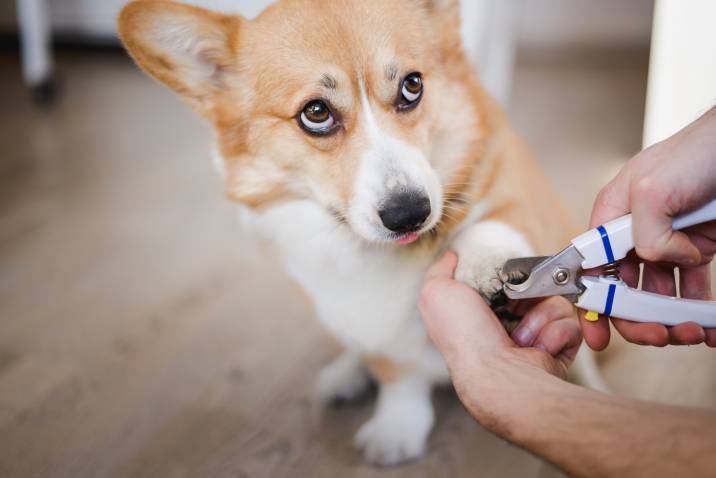
There’s quite a variety of nail trimmers on the market, including plier-style clippers, guillotine-style ones, and nail grinders/files. Don’t get intimidated by the names of these nail trimmers! These tools are safe for your pet as long as you use them properly. You should also gently introduce your dog to the idea of getting their nails trimmed.
The best nail trimmers are quiet and won’t startle your pet, are comfortable for you to hold, and are the right size for your pet’s nails.
6. Grooming scissors 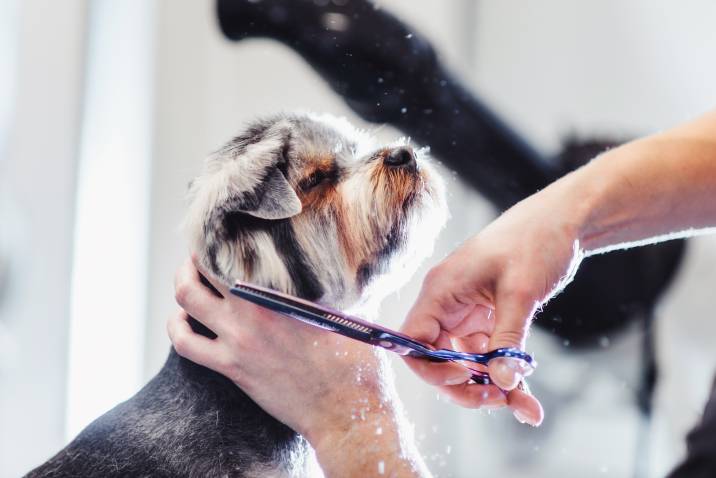
When looking for grooming scissors and shears, make sure they’re made of high-quality metal that won’t dull quickly. They should also be comfortable to hold and manipulate. Moreover, grooming scissors should be the right size for your pet and trimming purposes.
Here’s the difference between large and small grooming scissors:
Large blades are ideal for curly coats and large surfaces.
Shorter blades are used in areas that require more precision, like inside the hind legs or along the tips of the ears.
Finally, a good pair of grooming scissors must have safeguards to keep your pet safe, even if your dog moves during the grooming session.
7. Dog clippers
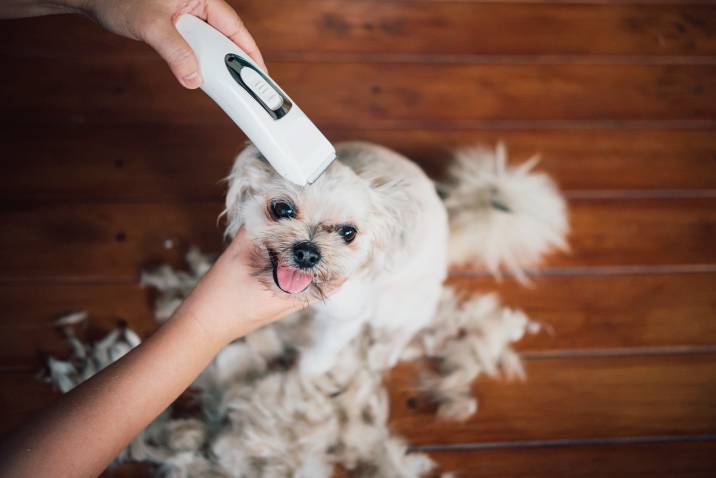
You’ll want to buy clippers designed for your pet’s breed since different dogs have different grooming requirements. Next, make sure the clipper is comfortable for you to hold and use. Double-check the blade details as well. A beginner-friendly clipper set should have a guide for the length of each cut. Lastly, check the noise level; You don’t want to scare away your pet with a noisy metal object!
8. Dog toothbrush and toothpaste
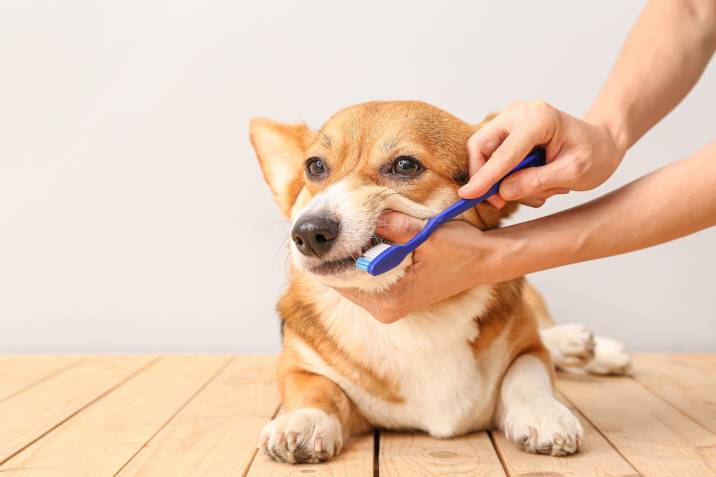
Make sure you use special dog toothpaste since human toothpaste can be toxic for animals. You’ll want to get a special brush as well. Some pet toothbrushes are long-handled (great for long-nosed dogs), while other models can be worn on your finger to give you more control.
Get top-tier dog grooming even while at home!
If you’re still struggling with grooming your dog at home, you can hire an experienced mobile dog groomer to take on the task. After your pet has been brushed and trimmed, you can also book a dog bath to get your pup looking and smelling fresh again. From dog grooming to bathing, Taskers are here to help with all your pet care needs!
FAQs on dog grooming tools
Find dog groomers, fast
Find a Dog Groomer
Related articles
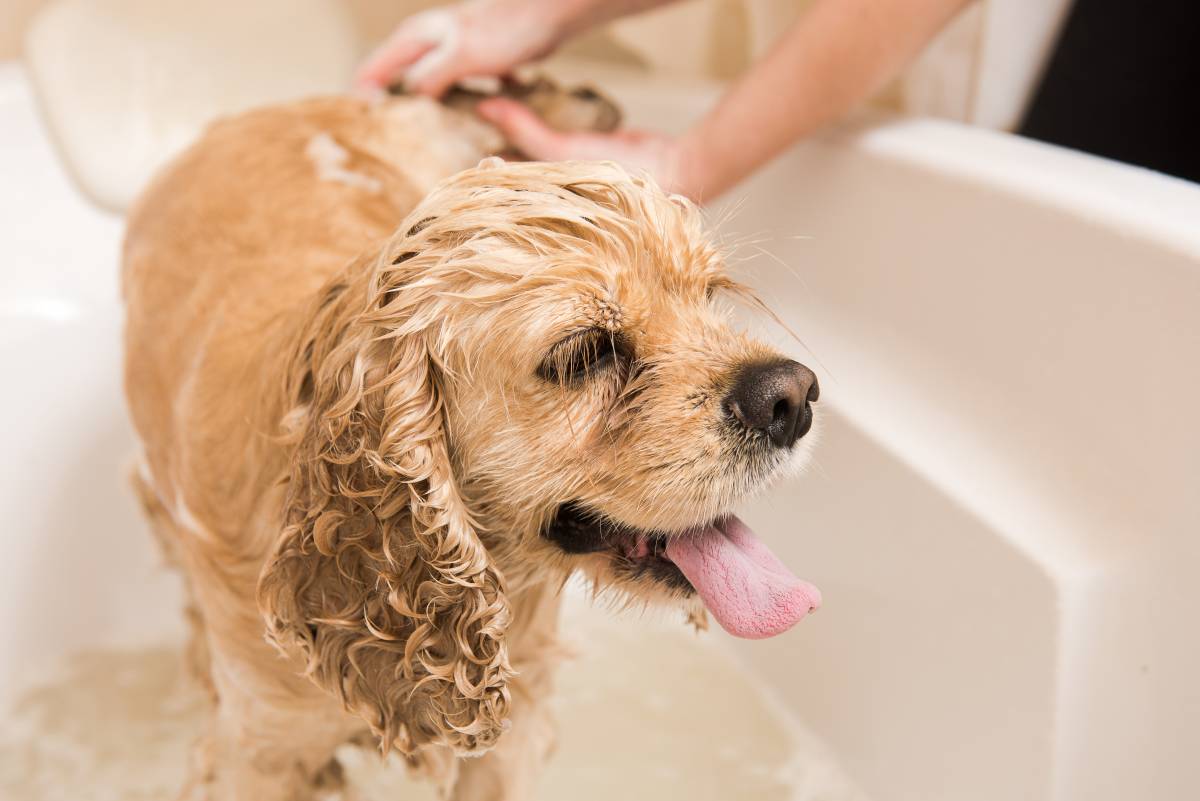
How to groom a dog at home
Read more

How often should you wash your dog
Read more

Simple steps to wash your dog
Read more
Related price guides
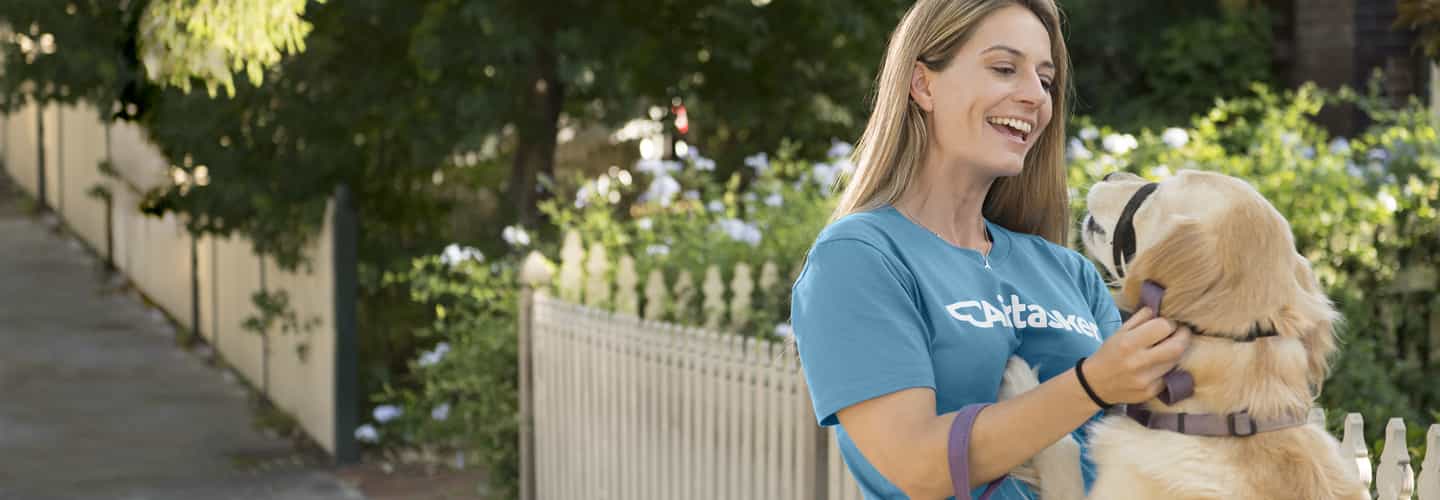
How much does a dog walker cost?
Read more